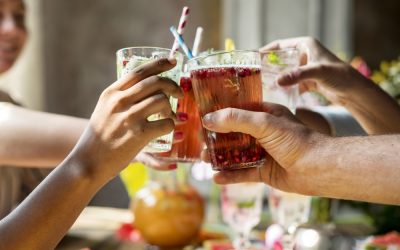Yet just a small minority, less than 10 percent, report receiving any substance abuse treatment. An alcohol relapse happens when someone attempts to reduce or stop drinking, and returns to misusing alcohol after a period of sobriety or moderation. Alcohol is a highly addictive substance, and excessive drinking can change your brain’s structure and how it functions. These drug relapse statistics demonstrate that anyone in recovery is vulnerable to relapse. Receiving treatment at an accredited rehab center has been proven to lower mortality rates and relapse rates, however.

Therapy not only gives people insight into their vulnerabilities but teaches them healthy tools for handling emotional distress. Some models of addiction highlight the causative role of early life trauma and emotional pain from it. Some people contend that addiction is actually a misguided attempt to address emotional pain. However, it’s important to recognize that no one gets through life without emotional pain.
What to Do After Relapse Occurs
Less alcohol consumption and fewer drinking problems, more self-efficacy and less reliance on avoidance coping at baseline predicted 3-year remission; this was especially true of individuals who remitted without help. These findings held for individuals who initially obtained help and for those who did not. People who attend therapy learn skills and strategies for preventing relapse.
In addition, feelings of guilt and shame are isolating and discourage people from getting the support that that could be of critical help. The more ACEs children have, the greater the possibility of poor school performance, unemployment, and high-risk health behaviors including smoking and drug use. Art Therapy for Addiction Cravings occur because the human brain has remarkable powers of association. They are typically triggered by people, places, paraphernalia, and passing thoughts in some way related to previous drug use. In the absence of triggers, or cues, cravings are headed toward extinction soon after quitting.
Take Our Substance Use Self-Assessment
BetterHelp can connect you to an addiction and mental health counselor. A diabetes relapse is characterized by unhealthy eating behavior. It means they have to try again and continue to https://g-markets.net/sober-living/how-to-cure-boredom-7-ways-to-stop-being-bored/ practice healthy eating. They may need to see a doctor or nutritionist and develop a healthy diet plan. However, people who slip and don’t seek help often experience a physical relapse.
COVID-19 Is Causing People To Relapse – Addiction Center
COVID-19 Is Causing People To Relapse.
Posted: Thu, 30 Apr 2020 07:00:00 GMT [source]
It’s not the same thing as a lapse, which is temporary and short-term — such as when you have one drink at a party, then go back to not drinking. When physical relapse happens, people in recovery from liver damage risk a recurrence of alcohol-related liver disease. Poor self-care leads to negative emotions, feelings of unhappiness and increased levels of stress. As people continue to practice poor self-care, they transition into a mental relapse.
Addiction Counseling: One Size Doesn’t Fit All
They begin using obsessively or compulsively, and they start to experience negative consequences from that use. It usually begins weeks or months before a person slips for the first time. Researchers have divided those phases into three easy-to-understand stages. It can be important to distinguish between a full-blown relapse and a slip-up.